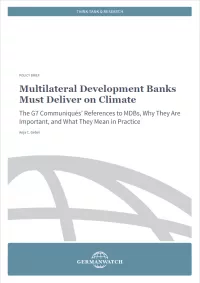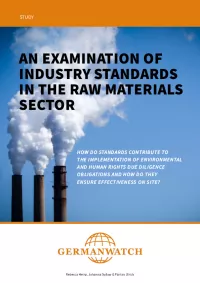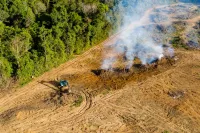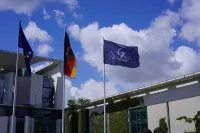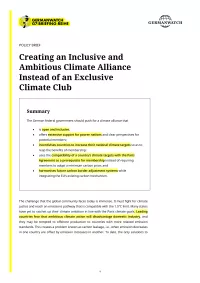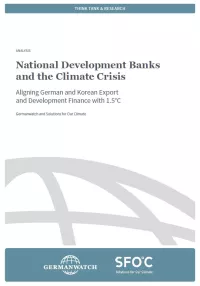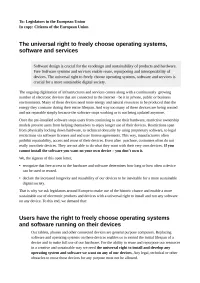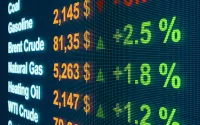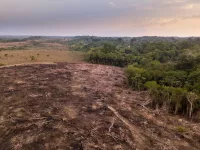Aktuelles (EntscheidungsträgerInnen)
When the G7 leaders met at the end of June 2022 in Elmau, they called on Multilateral Development Banks (MDBs) to further strengthen ambitious climate action. This policy brief explains what the G7 asked the MDBs to do, why this is important, and what it means in terms of concrete steps that should be taken in the short and medium term (including until COP27) to halt the climate crisis and successfully support the global transformation towards green and resilient economies. In this critical decade of implementation, quick outcomes are more important than ever before and MDBs are called upon to increase their efforts. Especially the World Bank will be assessed in terms of its ability to step up its climate ambitions and to lead the MDBs’ engagement in those areas.
Voluntary standards and other industry initiatives for the extraction of raw materials have established themselves increasingly in recent years as an instrument with which companies can implement their due diligence obligations. Yet, the existing standards are marked by a series of systematic, content-related and methodological shortcomings. This paper provides a first assessment of the methodological robustness of the various standards in the raw materials sector.
The expansion of agricultural land for the production of animal feed or palm oil is the biggest driver of loss and degradation of forests and other natural ecosystems worldwide. The EU’s demand for these so-called forest and ecosystem risk commodities plays a significant part in global deforestation linked to international trade.
At the forthcoming G7 Ministerials this week and next, Germany should push for stronger joint efforts to exit international fossil fuel financing. Considering the latest IPCC findings and the urgent need to stop investment in coal, oil and gas, the financial activities of public finance institutions (PFIs) play an important role to achieve the goals of the Paris Agreement. This paper analyses the alignment of German and Korean PFIs’ climate and sector strategies with the Paris Agreement and makes recommendations on how their strategies can align with a 1.5°C goal.
The European Union is in the process of redefining the ecodesign criteria for products in several legislative proposals. Together with 37 European organisations and companies, Germanwatch publishes an open letter calling on legislators in the EU to make use of the historic chance by introducing the universal right to install any software on any device, including full access to hardware.

